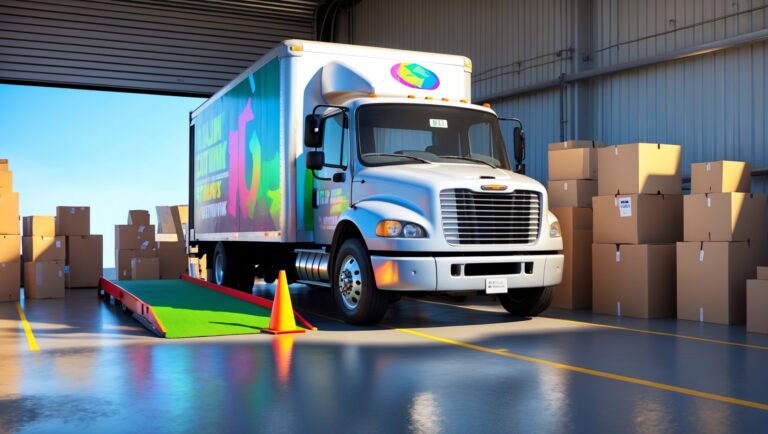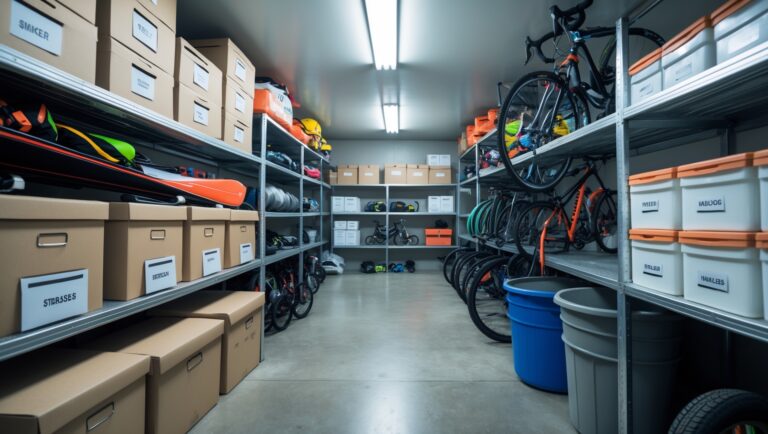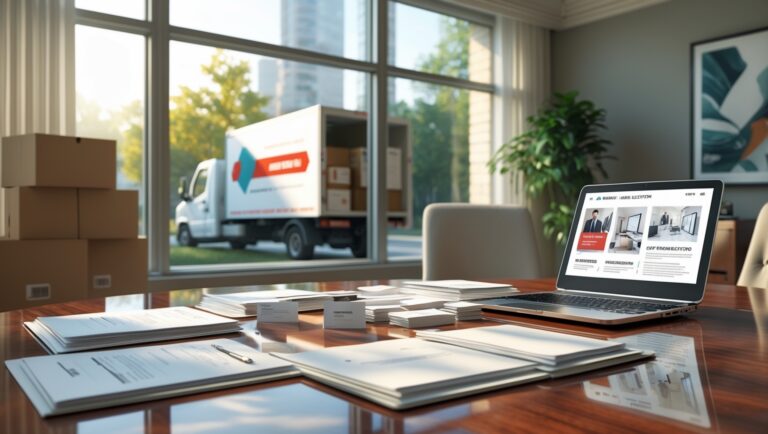Hidden Costs of Moving: A Detailed Look at Overlooked Expenses
Introduction: Why Hidden Moving Costs Matter
Planning a move? Most people budget for the obvious essentials: truck rentals, professional movers, and packing supplies. However, seasoned moving and storage professionals know that these line items often represent only a portion of the true cost of relocating. Hidden expenses—those small, often-overlooked charges—can quickly turn a well-planned move into a budget-buster. From utility setup fees to unexpected cleaning costs, these unanticipated charges can catch even experienced movers off guard. Understanding and preparing for these hidden costs is crucial for a smooth, stress-free transition. In this article, we’ll delve into the most common overlooked expenses associated with moving, explain how and when they crop up, and provide actionable strategies to help you anticipate, budget for, and minimize their impact. Whether you’re moving across town or to a different state, this detailed breakdown will ensure your moving budget is realistic—and your relocation is free from financial surprises.
1. Utility Transfers and Setup Fees
1.1 Disconnect and Connection Charges
Most utility companies charge to disconnect and reconnect services, such as electricity, water, gas, internet, and cable. These fees vary by provider and location, with some companies requiring deposits for new accounts—especially if you’re moving to a different city or state. Expect to pay:
- Electricity/Gas: $20–$50 per service for connection or transfer, plus possible security deposits.
- Water/Sewer: $15–$40 transfer fee, with some municipalities adding non-refundable administrative charges.
- Internet/Cable: $30–$100 for setup or equipment installation at the new address.
1.2 Early Termination and Overlap Costs
If your move date doesn’t align perfectly with your billing cycles, you may pay for utilities at both your old and new address for a few days or even weeks. Additionally, terminating a contract with internet or cable providers before its end date can trigger early termination fees.
2. Cleaning Costs and Damage Repairs
2.1 Professional Cleaning Requirements
Whether you’re vacating a rental or selling your home, professional cleaning may be required to meet lease or sales agreement standards. These services can range from $100 for a basic apartment clean to $400+ for larger homes or deep cleaning.
2.2 Repairing Wall Damage and Wear
Wall scuffs, nail holes, and minor carpet stains may require patching and touch-ups. Landlords often deduct these from your security deposit, but doing it yourself beforehand can be more cost-effective. Budget $50–$200 for basic supplies and labor.
3. Specialty Item Moving and Handling Fees
3.1 Oversized and Fragile Items
Pianos, pool tables, large safes, aquariums, and fragile antiques often require specialized handling. Most moving companies charge premium rates for these items, sometimes ranging from $150 to $600 per item, depending on size, weight, and complexity.
3.2 Disassembly and Reassembly Services
Complex furniture (e.g., bunk beds, custom shelving, gym equipment) may need to be disassembled for safe transport and reassembled at the destination. This service typically adds $75–$200 per furniture piece to your bill.
4. Packing Supplies Beyond the Basics
4.1 Specialty Materials
Standard boxes and tape are rarely enough. Protecting valuables often requires specialty packing materials:
- Dish barrels: $15–$25 each
- Wardrobe boxes: $12–$20 each
- Mattress bags: $10–$15 each
- Furniture blankets and shrink wrap: $20–$50 per item if not included by your mover
4.2 Shortages and Last-Minute Purchases
Underestimating your supply needs often leads to last-minute store runs, where prices can be higher. Plan to purchase 10–15% more supplies than your initial estimate to avoid this hidden cost.
5. Storage-Related Expenses
5.1 Temporary Storage Unit Rental
If your move-in and move-out dates don’t align, you may need a temporary storage unit. Monthly rental fees vary by size and location but expect $50–$300 per month. Don’t forget initial administrative fees, required insurance, and lock purchases.
5.2 Access Fees and Late Charges
Some storage facilities charge for after-hours access or late payments, adding $10–$50 per occurrence. Ensure you understand all terms before signing a contract.
6. Moving Insurance and Liability Coverage
6.1 Valuation Coverage Limitations
Basic moving company rates typically include limited liability coverage (e.g., $0.60 per pound per item), which may not fully protect your valuables. Upgrading to full-value protection or third-party insurance can add $100–$500 to your move, depending on coverage levels and the value of your belongings.
6.2 Deductibles and Exclusions
Be aware of policy deductibles and exclusions—some items (jewelry, cash, collectibles) might require separate riders or may not be covered at all.
7. Travel, Meals, and Lodging
7.1 Long-Distance Moves
For moves spanning several hours or days, travel expenses can add up quickly. Account for:
- Fuel and Tolls: Especially if driving a rental truck.
- Meals: Eating out during travel and on move-in day ($10–$40 per person per meal).
- Hotels: Overnight stays ($80–$200 per night).
7.2 Pet and Child Care
Arranging pet boarding or child care during the move can cost $20–$60 per day, per pet or child. Overlooking this can not only strain your budget but also increase stress on the moving day.
8. Permits, Parking, and Elevator Fees
8.1 Parking Permits and Street Closures
Urban moves often require city-issued parking permits for moving trucks or temporary street closures. Fees range from $20–$150, and fines for illegal parking can be significantly higher.
8.2 Building Access and Elevator Reservations
High-rise apartments and condos may require scheduling elevator time slots or paying refundable elevator deposits ($100–$500). Some buildings charge non-refundable moving fees or require proof of insurance from your movers.
9. Unanticipated DIY Expenses
9.1 Equipment Rental and Fuel Surcharges
Renting moving equipment (dollies, hand trucks, blankets) that isn’t included with your truck can add $20–$100. Some rental companies also impose mandatory fuel surcharges or require you to return vehicles with a full tank, risking extra fees if you fall short.
9.2 Physical Wear and Accidental Damage
DIY moves carry risks of injury or property damage. Medical supplies for minor injuries, protective gear, or repair costs for scratched floors or doors can add unexpected expenses.
10. Post-Move Costs: Settling In
10.1 New Home Essentials
After arriving, you may need to purchase new locks, window coverings, cleaning supplies, or basic groceries. Budget $100–$500 for these items, which are rarely top-of-mind during the move.
10.2 Address and Document Updates
Changing your address with the DMV, updating vehicle registration, and forwarding mail can involve fees ($1–$50 per service), especially if you need documents expedited. Don’t forget pet registration or business license updates if applicable.
11. Strategies to Minimize Hidden Moving Costs
11.1 Comprehensive Pre-Move Checklist
Create a detailed moving checklist that includes all utilities, services, and possible fees. Contact providers in advance to confirm terms, transfer policies, and deposits. Ask for written quotes from all vendors and review contracts for fine print.
11.2 Smart Packing and Downsizing
Sell, donate, or discard items you don’t need to reduce the volume of goods. This lowers transportation, storage, and packing supply costs. Use household linens and clothing to pad fragile items, saving on specialty materials.
11.3 Insurance and Liability Planning
Review your current renter’s or homeowner’s insurance for relocation coverage. Compare moving company protection options and consider third-party insurance for high-value items. Photograph valuables before packing for easy claims processing.
11.4 Booking and Scheduling Savvy
Schedule your move mid-week or during off-peak seasons for lower rates. Reserve parking and elevators well in advance, and confirm all access requirements with building management to avoid fines or delays.
11.5 Post-Move Budget Buffer
Set aside an additional 10–15% of your total moving budget for unplanned expenses. This financial cushion helps cover last-minute surprises without stress.
Conclusion: Move Smarter by Accounting for Every Expense
Moving is a significant life event, and financial surprises can overshadow even the most exciting transitions. By understanding the full range of costs—including those that often go unnoticed—you’re better positioned to move with confidence. Hidden expenses such as utility setup fees, storage access charges, parking permits, and specialty item handling are rarely highlighted in standard moving guides, yet they can collectively add hundreds or even thousands of dollars to your final bill. The key to a successful, low-stress move is proactive planning: develop a comprehensive checklist, gather detailed quotes, and maintain a flexible budget that includes a buffer for the unexpected. Remember, every move is unique—thorough research tailored to your specific situation pays dividends. Whether you’re a first-time mover or a seasoned pro, accounting for these hidden costs ensures you won’t be caught off guard and can focus on settling into your new home with peace of mind. Smart budgeting today sets the stage for smoother transitions and a brighter start in your new space.






